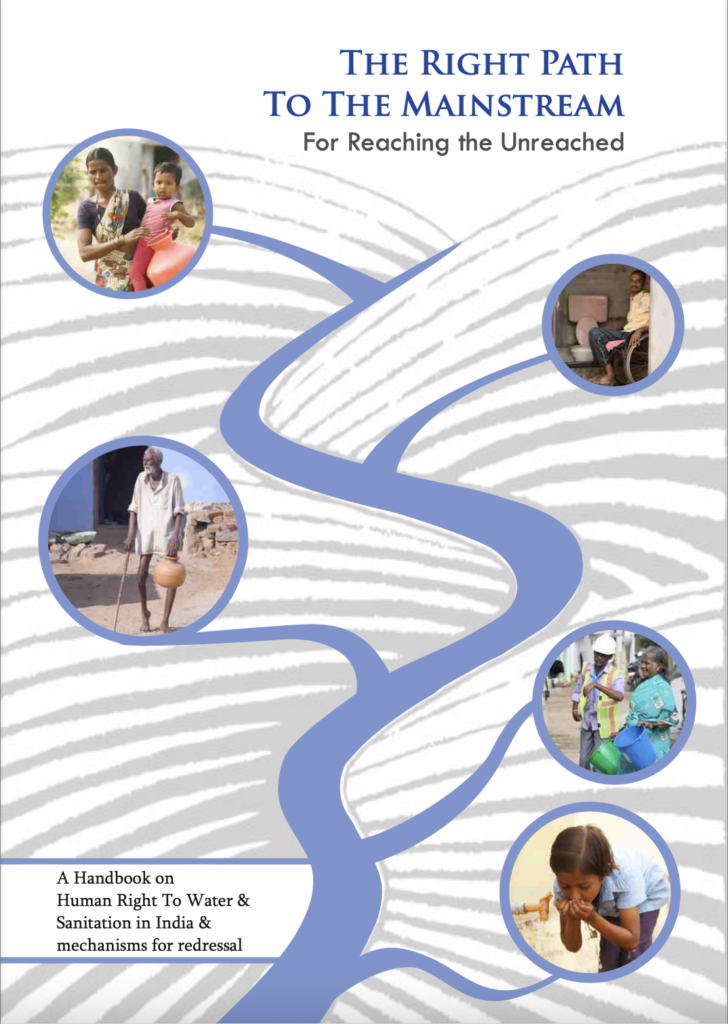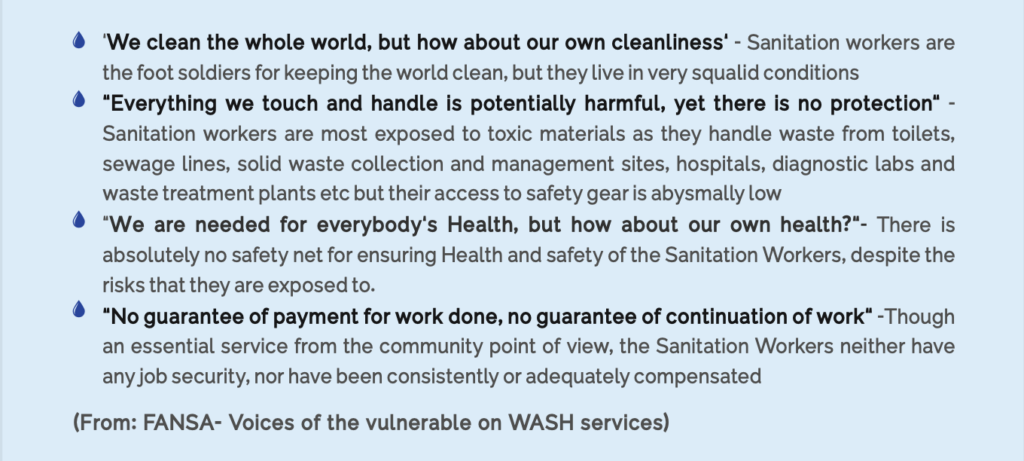
Human Right 2 Water member, Sri Purna Chandra Misra, with Dr. M R Seetharam, published The Right Path to the Mainstream: For Reaching the Unreached. This is a handbook on the Human Right to Water and Sanitation in India, including mechanisms for redressal. The book is a compilation of many first-hand field experiences from the authors and other relevant actors in the Freshwater Action Nework South Asia (FANSA).
“Water as a basic prerequisite for life is unquestionable”
Many communities and individuals in India and also around the world don’t have integral and indispensable access to water, sanitation and hygiene. This book provides an introduction to the Human Rights to Water and Sanitation – it emphasises the importance of equal responsibilities and rights in regards to the Sustainable Development Goals. It also details the current situation in India and in the Odisha State looking at the marginalised who face deprivation of these rights and the vulnerabilities they have. Importantly, it looks into the platforms available and how to access these mechanisms to alleviate these situations.
Marginalised groups and their vulnerabilities
The book gives great insight on the different marginalised groups that are affected by the lack of water, sanitation, and hygiene. Furthermore, it explores the obligations that different actors in society have to alleviate the effects that these groups suffer because of neglect and injustices. The authors were able to collect different testimonies from sanitation providers, the elderly, urban Shanty dwellers, women, tribal communities, among others, illustrating the gravity and necessity of taking care of water resources.
WASH rights and human rights in India have a complex reality. The detailed situation analysis illustrates how it is managed in India. Many institutions have the legal responsibility to fight for the WASH rights of the people in India, especially those who are more vulnerable.

“It is well recognised that no society is homogenous, and disparities and diversities are the norm”


